All Things To All Men
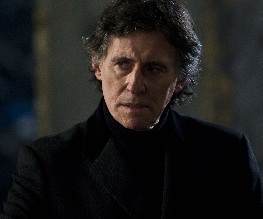
Crime thrillers of recent memory set in London have been average at best: The Sweeney and Welcome To The Punch weren’t anything to write home about. Unfortunately All Things To All Men can be added to that list. This a real shame, as there’s some proper British talent in the form of Byrne and Stephens that is being spunked up the wall. When the first shot of a woman in All Things To All Men is her long, tanned legs before the camera pans up to her face; you know what sort of film you’re watching.
Sewell – eyes of an eagle, voice of a barmaid – plays Jonathan Barker, a crooked cop with a plethora of gangsters in his back pocket. He is in cahoots with Joseph Corso (Byrne), a crime boss with a blind spot when it comes to his son. When Barker arrests his son for being in possession of drugs, the two strike a deal: Barker will release Corso’s son if he employs an expert bank robber to steal some money for him. Said expert bank robber is James Riley (Stephens), who was happy just doing his usual diamond thefts and getting on with life. He’s basically a loner; Riley even tells us how much of a loner he is for the benefit of those who don’t quite get it. Riley is employed to steal £5million for Corso, who will actually split the money with Barker and cut James out of the picture. Permanently. Realising he’s been double-crossed, Riley enlists the help of the widow of one of his mates (Pataky) and decides to play Barker and Corso at their own game.
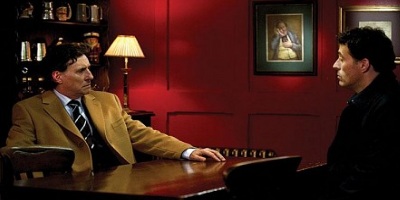
It’s great to see a film set in your neck of the woods, but director George Issac developed an irksome habit of shoving recognisable places in down our throats: the Gherkin, Leicester Square, Grosvenor Hotel, South Bank, The Shard (unfinished). None of these recognisable places made up for the lack of story or boring characters. The Sweeney succeeded in making London look grim to match the story and the people that populated it – furtive meetings in dark shipyards, desolate caravan parks – areas that were very British but distinctly urban and London-like. All Things To All Men uses its setting as filler, or to make the audience feel more empathy because somewhere they recognise is on the big screen at the cinema. A lot of time is spent filming characters muttering to each other in cars, or in restaurants or on rooftops; and action scenes are kept to a minimum. There’s a pointless car chase that kicks off when someone is sent to kill Riley, only to turn tail and drive away when they realise they’ve failed. Flashy cars are involved, as though that’s supposed to make the set piece more interesting.
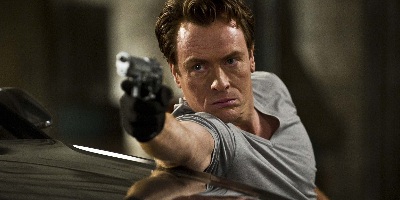
Sewell was clearly having a blast throughout, growling out such sparkling dialogue as “It’s time to pop your cherry” to one of his male colleagues, or “Worried it’s your boyfriend?” when the mobile phone of one of his conquests rings. We’re not meant to like Barker, but he’s not a figure worthy of your dislike – he isn’t that deep – he’s only worth your rolliest of eye rolls. Byrne, when he wasn’t pondering over whether he wanted his accent to be American or Irish, is probably the most unthreatening villain since Mathieu Amalric in Quantum of Solace. It was hard to take him seriously when he was having high tea for one in a posh hotel, and it’s not until the film’s third act that he really gets going. Pataky, who is so much better than the roles she chooses, might as well not have been in it; and Stephens was doing his best to smoulder and wear the hell out of his T-shirts and jeans. He is a solid actor, but he lacked the charm that the role of James Riley needed; his performance was almost reptilian it was so devoid of warmth. A young gun like Sam Riley, or Wild Bill’s Charlie Creed-Miles, would have brought a bit of personality to the role; making James infinitely more likeable.
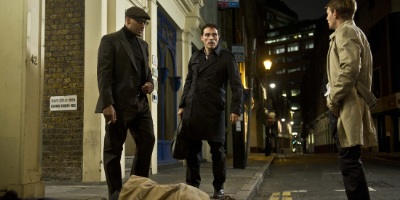
When the reason behind Barker’s actions is made known, you’ll be gobsmacked. Not because it’s a cleverly thought out plot twist, but because it’s so crushingly disappointing and childish. Throughout the film, we’re fed the idea of the dark side of policing; that Barker and his cronies will do whatever is necessary to get to the top, the “top” being in this instance the position of Detective. A good point is made about the role of police in today’s society during the monologue of plucky cop Dixon (Leo Gregory) in the final scene, but it came 80-odd minutes too late to be worth listening to. Looks like we’re still waiting on a decent British thriller. Next please!

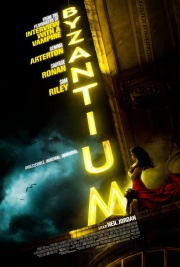
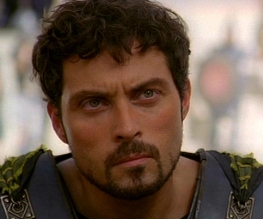
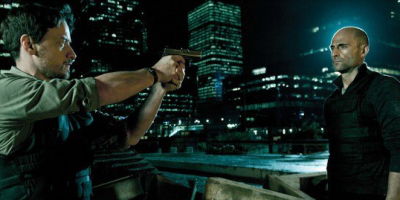

Recent Comments